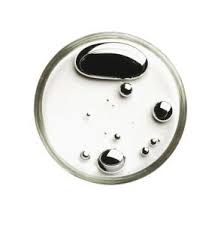
- +86-13363869198
- weimiaohb@126.com

Жел . 31, 2024 12:33 Back to list
Curcumin Interactions and Their Impact on Health and Wellness
Curcumin Understanding Its Interactions and Implications
Curcumin, the active compound derived from the turmeric root (Curcuma longa), has garnered considerable attention in the scientific community and among health enthusiasts for its potential therapeutic benefits. With a history of use in traditional medicine, curcumin is predominantly recognized for its anti-inflammatory, antioxidant, and anticancer properties. However, the interactions of curcumin with various biological systems and pharmaceuticals are complex and warrant careful examination.
Mechanisms of Action
Curcumin exerts its effects through various mechanisms, including the modulation of inflammatory pathways, the inhibition of nuclear factor-kappa B (NF-κB), and the activation of antioxidant response elements. These mechanisms are responsible for curcumin's ability to alleviate symptoms of chronic diseases such as arthritis, cardiovascular diseases, and cancer. Furthermore, curcumin’s interaction with various signaling molecules allows it to influence cell proliferation, apoptosis, and metastasis.
Pharmacokinetics and Bioavailability
Despite its promising benefits, curcumin’s therapeutic potential is often limited by its poor bioavailability. The compound is rapidly metabolized in the liver and intestine, resulting in low systemic concentrations. To overcome this challenge, researchers have explored various formulations, including encapsulation techniques, conjugation with other molecules, and the creation of curcumin analogs. These methods aim to enhance the absorption and efficacy of curcumin, thereby maximizing its health benefits.
Drug Interactions
curcumin interactions

Curcumin's interactions with medications constitute a significant area of research. Several studies indicate that curcumin may affect the pharmacokinetics of various drugs by inhibiting cytochrome P450 enzymes, particularly CYP3A4, CYP1A1, and CYP2D6. These enzymes play crucial roles in drug metabolism, and their inhibition can lead to increased plasma concentrations of certain medications, elevating their risk of adverse effects. For example, patients on anticoagulants like warfarin should exercise caution when using curcumin, as it may enhance the effects of the drug, increasing the likelihood of bleeding.
Moreover, curcumin may interact with chemotherapy drugs. While it has been shown to enhance the efficacy of some anticancer agents, it could also potentially interfere with the effectiveness of others. Therefore, cancer patients must consult healthcare providers before incorporating curcumin supplements into their regimen.
Nutritional Interactions
Curcumin can also interact with various nutrients and dietary compounds. For instance, piperine, a component of black pepper,has been demonstrated to significantly enhance the bioavailability of curcumin. This synergistic effect is attributed to piperine’s ability to inhibit curcumin’s metabolism, allowing for higher concentrations in the bloodstream. Conversely, certain nutrients, such as omega-3 fatty acids, may work synergistically with curcumin to amplify its anti-inflammatory effects, suggesting potential benefits in inflammatory conditions.
Considerations for Use
When considering curcumin supplementation, it is essential to approach it with caution, especially for individuals currently taking prescription medications or those with underlying health conditions. Consulting with a healthcare professional can provide valuable guidance on the safe use of curcumin and its potential interactions.
In summary, while curcumin presents numerous therapeutic benefits, its interactions with other medications and substances are nuanced and should not be overlooked. Continued research is vital to unravel these complexities, ensuring that curcumin can be utilized safely and effectively in various therapeutic contexts. As our understanding of curcumin’s mechanisms and interactions grows, so too does the potential for harnessing its benefits in enhancing health and preventing disease. Ultimately, the journey to fully appreciate curcumin's role in health is ongoing, and future studies will pave the way for informed usage and incorporation in modern health practices.
-
AI-Optimized CAS: 79099-07-3 Factories for High Yield
NewsAug.01,2025
-
Premium CAS 1451-83-8 Factory with GPT-4 Turbo | AI-Optimized
NewsJul.31,2025
-
Pharmaceutical Intermediates - AI-Optimized Synthesis & Purity
NewsJul.31,2025
-
Top CAS: 79099-07-3 Factories & Wholesale Supplier from China
NewsJul.30,2025
-
High-Quality GS-441524 for White Liquid Type Factories & Suppliers
NewsJul.29,2025
-
High-Quality Pharmaceutical Intermediates for Sale – Reliable Supply
NewsJul.29,2025